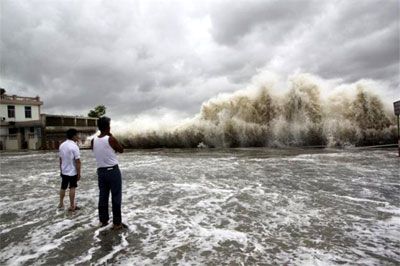
The US is looking for an ‘ambitious’ and ‘fair’ agreement at the Paris climate conference which accelerates the transition to clean energy and is applicable to all countries, America's top official on climate change has said.
"We are looking for an agreement that is ambitious, effective, fair, and durable; that accelerates the transition that we all need to a clean energy, low-carbon, resilient economy worldwide; and that is applicable to all parties, all countries," Todd Stern, the Special Envoy for Climate Change in the State Department, told reporters.
"This is one of the really critical features of this agreement that everybody is going to be involved, everybody engaged," Stern said ahead of the important summit on climate change beginning next week in Paris, which would be attended by top global leaders including US President Barack Obama and Prime Minister Narendra Modi.
"I think it's also critically important that this is an agreement that sends a signal -– and if we do it right, it's going to send a signal -- to the public, to civil society, to the private sector all over the world that the leaders of the world have taken this issue on, that we're moving forward, and that there's no going back," he said.
"In terms of the critical issues, we need strong mitigation -- that's the effort to reduce emissions.
“We need excellent transparency. It's important that all countries and observers can see what everybody's doing, whether they're following through on the commitments and pledges that they've made.
“We need strong provisions on adaptation," he said.
"There's a great many countries who don't emit very much but who -- face great risk from the effects of and impacts of climate change, and even countries who are advanced -- I mean, we know this in the United States; just look at Hurricane Sandy and the droughts that we're suffering and so many other things," Stern said.
"All countries have a real challenge in adaptation and this agreement means to enhance and increase the focus on adaptation," he said.
According to US officials, countries also need strong provisions on financial and other kinds of assistance to poor countries that need it.
"We need to move this agreement from the old-style, backward-looking bifurcation between two distinct categories into a world which is forward-looking, where there is differentiation across the range of countries.
“Countries can't be expected to do more than they're able to, but we shouldn't just have this antiquated way of bifurcating climate change," Stern noted.
Responding to a question, Stern said the US has favoured an approach that was first put forward in a proposal by New Zealand a year or two ago, which is essentially a kind of hybrid in which many provisions of the agreement would be legally binding and some would not be.
"So for example, the provisions that apply fundamentally to the accountability of the agreement, the transparency of the agreement, accountability for -- precisely for the targets you put forward, for what you say you're going to do, as well as various elements of process and various rules that would apply to how you count emissions and things like that," he noted.
"The thing that would not be legally binding in the New Zealand approach is the targets themselves, and we thought that that was a good balance, and we thought that and we think that because we're looking for an agreement that has broad, really full participation and we were quite convinced that an agreement that required actually legally binding targets would have many countries unable to participate," he added.
The image is used for representational purpose only. Photograph: Reuters











 © 2025
© 2025